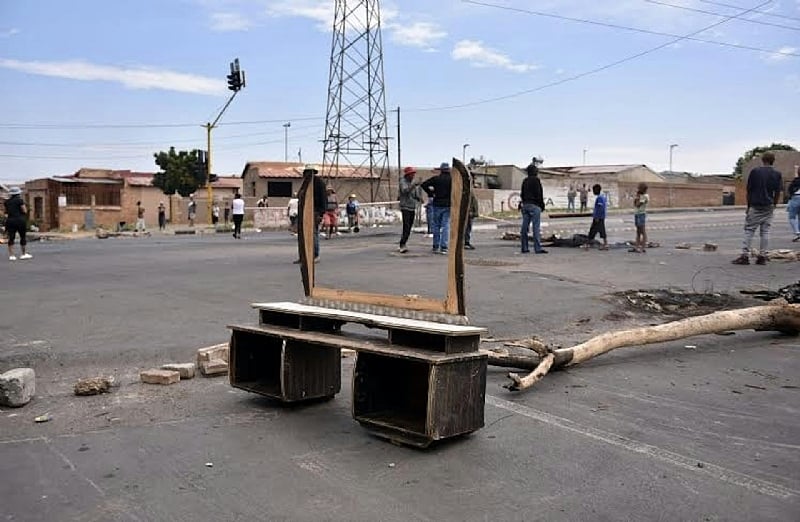African cities are growing at an incredible pace. With this growth comes a mix of opportunity and challenge. How do we build cities that are not only smart but also fair, inclusive and resilient?
A smart city uses digital tools such as sensors, data networks and connected devices to run services more efficiently and respond to problems in real time. From traffic and electricity to public safety and waste removal, smart technologies aim to make life smoother, greener and more connected.
Ideally, they also help governments listen to and serve citizens better. But without community input, “smart” can end up ignoring the people it’s meant to help.
That’s why a different approach is gaining ground. One that starts not with tech companies or city officials, but with the residents themselves.
I’ve been exploring what this looks like in practice, in collaboration with Terence Fenn from the University of Johannesburg. We invited a group of Johannesburg residents to imagine their own future neighbourhoods, and how technology could support those changes.
Our research shows that when residents help shape the vision for a smart city, the outcomes are more relevant, inclusive and trusted.
Rethinking smart cities
Our research centred on Westbury, a dense, working-class neighbourhood west of central Johannesburg, South Africa. Originally designated for Coloured (multi-racial) residents under apartheid, Westbury remains shaped by spatial injustice, high unemployment and gang-related violence, challenges that continue to limit access to opportunity and basic services. Despite this, it is also a place of resilience, cultural pride and strong community ties.
We tested a method called Participatory Futures, which invites people to imagine and shape the future of their own communities. In Westbury, we worked with a group of 30 residents, selected through local networks to reflect a mix of ages, genders and life experiences. Participants took part in workshops where they mapped their neighbourhood, created stories and artefacts and discussed the kind of futures they wanted to see. This approach builds on similar methods used in cities like Helsinki, Singapore and Cape Town, where local imagination has been harnessed to inform urban planning in meaningful, grounded ways.
We invited residents to imagine their own future neighbourhoods. What kind of changes would they like to see? How could technology support those changes without overriding local values and priorities?
Through this process, it became clear that communities wanted a say in how technology shapes their world. They identified safety, culture and sustainability as priorities, but wanted technology that supports, not replaces, their values and everyday realities.
The workshops revealed that when people imagine their future neighbourhoods, technology isn’t about gadgets or buzzwords; it’s about solving real problems in ways that fit their lives.
Safety was a top concern. Residents imagined smart surveillance systems that could help reduce crime, but they were clear: these systems needed to be locally controlled. Cameras and sensors were fine, as long as they were managed within the community by people they trusted, not some distant authority. The goal was safer streets, not more control from afar.
Safety is a deeply rooted concern in Westbury, where residents live with the daily reality of gang violence, drug-related crime and strained relations with law enforcement. Trust in official structures is eroded. The desire for smart safety technologies is not about surveillance but about reclaiming a sense of control and protection.
Energy came up constantly. Power cuts are a regular part of life in Westbury. People wanted solar panels, not as a green luxury but as basic infrastructure. They imagined solar hubs that powered homes, schools and local businesses even during blackouts. Sustainability wasn’t an abstract goal; it was about self-sufficiency and dignity.
Technology also opened the door to cultural expression. Residents dreamed up tools that could make their stories visible, literally. One idea was using augmented reality, a technology that adds digital images or information to the real world through a phone or tablet, to overlay neighbourhood landmarks with local history, art and personal memories. It’s tech not as a spectacle, but as a way to connect past and future.
And then there were ideas about skills and education: digital centres where young people could learn to code, produce music or connect globally. These were spaces to build the future, not just survive the present. People imagined smart tools that could showcase local art, amplify community voices, or support small businesses.
In short, the technology imagined in Westbury wasn’t about creating a futuristic cityscape. It was about building tools that reflect the community’s values: safety, creativity, shared power and resilience.
Lessons for the future
If we want African smart cities to succeed, they need to be designed with, not just for, the people who live in them. Top-down models can miss the nuances of everyday life.
There are growing examples of participatory approaches reshaping urban futures around the world. In Cape Town, the “Play Khayelitsha” initiative used interactive roleplay and games to engage residents in imagining and co-planning future neighbourhoods. This helped surface priorities such as safety, mobility and dignity.
In Medellín, Colombia, a history of top-down planning was transformed by including local voices in decisions about transport, public space and education.
These cases, like Westbury, show that when communities are treated as co-creators rather than passive recipients, the outcomes are more inclusive, sustainable and grounded in real-life experience.
This shift is especially important in African cities, where the effects of colonial history and structural inequality still shape urban development. Technology isn’t neutral. It carries the assumptions of its designers. That’s why it matters who’s in the room when decisions are made. The smartest cities are those built with the people who live in them.
Rennie Naidoo does not work for, consult, own shares in or receive funding from any company or organisation that would benefit from this article, and has disclosed no relevant affiliations beyond their academic appointment.
By Rennie Naidoo, Professor of Information Systems, University of the Witwatersrand


